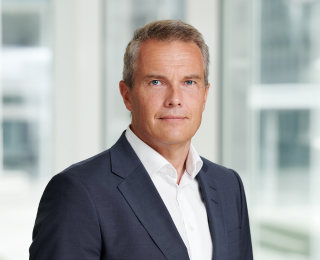
Energy Perception Survey 2024
Insert your headline, placeholder:
Survey confirms commitment to renewable energy. Concerns for energy security and environmental impact drive acceptance and action.
Insert your text, placeholder:
100 decision makers in energy-intensive industries and / or 2,000 citizens from across the nation expressed their worries and their energy preferences.
Foreword
Achieving net zero will require a total re-wiring of the global energy system, as carbon-intensive energy sources are replaced by emissions-free ones, and energy-consuming devices and processes are switched over to run on clean fuels and electricity.
The need for urgency has never been clearer: the world requires a three-fold acceleration in investment into low-carbon energy technologies if it is to get on track for net zero by mid-century.
The continued development of new clean energy technologies, and the implementation of supportive policy environments, will play central roles in enabling this transition - but so too will the attitudes, perceptions and decisions of many millions of citizens and business leaders worldwide. How these individuals perceive the opportunities and risks in the low-carbon transition; their grasp of the key facts and trade-offs; their support for different policy measures, and ultimately the purchasing and investment decisions they take, have the potential to make or break our collective efforts to limit climate change.
Citizens
This new study reveals a high level of awareness of climate change and its risks - more than 80% of citizens surveyed are ‘worried’ about climate change. Respondents also voiced their approval of key technology solutions: wind, solar, green hydrogen, battery storage, hydropower and even nuclear are each seen as ‘positive’ by a majority of respondents, and renewable energy is an important factor for 89% of those surveyed, when choosing an energy supplier. Yet significant shares of citizens are still not comfortable living near new energy infrastructure, such as wind and solar farms – a stance which will hinder large-scale adoption of renewables in densely populated countries. The survey points to possible solutions, however, with local benefits such as electricity discount schemes being seen as attractive to promote acceptance of local energy infrastructure.
Industry
Leaders across industrial sectors, such as metals, mining, materials, food, transport, pulp and paper, play a critical role in shaping the energy footprint of these industries, and hold the keys to decarbonizing some of the world’s highest-emitting activities. Here the survey shows a near-unanimous agreement that energy supply needs in these sectors will only grow in future, and that renewable energy will be a critical part of the solution – even if it means paying a premium for energy. Fully 89% of respondents say that their companies would be willing to pay an uplift for renewable energy with associated certification.
As clean energy technologies become mainstream, public and business perceptions will increasingly shape the success and speed of energy transition initiatives in different countries. With this in mind, I welcome the findings from this new study commissioned by Statkraft, and hope you will find the results to be both thought-provoking and inspiring.
|
|
|
|
|
Jon Moore, CEO at BloombergNEF Jon is CEO of BloombergNEF taking on this role at the end of 2013. BloombergNEF (BNEF) is a strategic research provider covering global commodity markets and the disruptive technologies driving the transition to a low-carbon economy. BNEF assesses pathways for the power, transport, industry, buildings and agriculture sectors to adapt to the energy transition, helping commodity traders, corporate strategists, finance and policy professionals navigate change. |
||
Foreword by
Jon Moore, CEO at BloombergNE
Achieving net zero will require a total re-wiring of the global energy system, as carbon-intensive energy sources are replaced by emissions-free ones, and energy-consuming devices and processes are switched over to run on clean fuels and electricity. The need for urgency has never been clearer: the world requires a three-fold acceleration in investment into low-carbon energy technologies if it is to get on track for net zero by mid-century.
The continued development of new clean energy technologies, and the implementation of supportive policy environments, will play central roles in enabling this transition - but so too will the attitudes, perceptions and decisions of many millions of citizens and business leaders worldwide. How these individuals perceive the opportunities and risks in the low-carbon transition; their grasp of the key facts and trade-offs; their support for different policy measures, and ultimately the purchasing and investment decisions they take, have the potential to make or break our collective efforts to limit climate change.
Citizens
This new study reveals a high level of awareness of climate change and its risks - more than 80% of citizens surveyed are ‘worried’ about climate change. Respondents also voiced their approval of key technology solutions: wind, solar, green hydrogen, battery storage, hydropower and even nuclear are each seen as ‘positive’ by a majority of respondents, and renewable energy is an important factor for 89% of those surveyed, when choosing an energy supplier. Yet significant shares of citizens are still not comfortable living near new energy infrastructure, such as wind and solar farms – a stance which will hinder large-scale adoption of renewables in densely populated countries. The survey points to possible solutions, however, with local benefits such as electricity discount schemes being seen as attractive to promote acceptance of local energy infrastructure.
Industry
Leaders across industrial sectors, such as metals, mining, materials, food, transport, pulp and paper, play a critical role in shaping the energy footprint of these industries, and hold the keys to decarbonizing some of the world’s highest-emitting activities. Here the survey shows a near-unanimous agreement that energy supply needs in these sectors will only grow in future, and that renewable energy will be a critical part of the solution – even if it means paying a premium for energy. Fully 89% of respondents say that their companies would be willing to pay an uplift for renewable energy with associated certification.
As clean energy technologies become mainstream, public and business perceptions will increasingly shape the success and speed of energy transition initiatives in different countries. With this in mind, I welcome the findings from this new study commissioned by Statkraft, and hope you will find the results to be both thought-provoking and inspiring.
____________________________________
|
|
|
|
|
Jon Moore, CEO at BloombergNEF Jon is CEO of BloombergNEF taking on this role at the end of 2013. BloombergNEF (BNEF) is a strategic research provider covering global commodity markets and the disruptive technologies driving the transition to a low-carbon economy. BNEF assesses pathways for the power, transport, industry, buildings and agriculture sectors to adapt to the energy transition, helping commodity traders, corporate strategists, finance and policy professionals navigate change. |
||
About the survey
- Research conducted in July 2024 on behalf of Statkraft, Europe’s largest producer of renewable energy, to understand how society and industry perceive energy-related challenges.
- 100 decision makers in energy-intensive industries participated in the corporate survey*
- Over 2,000 citizens shared their views in the nationally representative survey*
Detailed information about the survey respondents on the bottom of the page
Main common findings among respondens from the general public
81% of the general public are worried about the climate change threat for these top 3 reasons:
- Environmental consequences such as flooding, wildfires, heatwaves, and sea levels rising
- Pollution and impact it has on my health
- The detrimental effect it has on the habitats of people and animals
80% have a positive view of renewable power (76% of onshore wind, 76% of offshore wind, 83% of solar power, and 75% of hydropower). The most important reason being “positive as it creates energy independence” (38%) .
-

77%
are concerned about their country’s energy security
-

44%
are not aware of any specific activities to achieve their country’s climate targets
-

41%
have a complete understanding of where their energy comes from
-

42%
believe bills will go down if they moved to renewable energy and 32% think they will go up
-

69%
agree that it is the responsibility of government and big corporates to solve the climate crisis
Main common findings among respondens from the industry
When asked “What more can your company do to meet carbon neutrality goals?”, respondents replied (excluding India):
- 48% implementing more programmes aimed at improving individual and companywide carbon emissions
- 46% purchasing power through a renewable power company
- 42% better staff education
-

93%
say the procurement of renewable energy with associated certification is important.
-

89%
say their company would be willing to pay for an uplift for renewable energy with associated certification.
-

61%
say their company currently sources its electricity from renewable energy sources.
-

97%
say their company needs an increase in energy supply to meet future business and sustainability targets, with the most important drivers: meeting customer expectations (32 %), reducing environmental impact (31 %), compliance with regulations (30 %)”
Press release
Contact person

Torbjørn Steen
Vice President External Communications

500 decision makers in the following sectors: Mining and steel manufacturer, Chemicals and petrochemicals, Metals or cement, Machinery, Food/beverage, Pulp and paper, Transportation/automotive, Tech and Data storage, Energy companies, who have the following job titles: (Senior) Procurement Officer/Specialist/Manager, Energy Manager/Buyer, Sustainability Analyst/Manager, Head of Sustainability, Purchasing Manager, (Global) Energy Director, Head of Energy Business across Poland, the UK, Sweden, Ireland and India between 02.07.2024 – 09.07.2024. The sample is tailored to give a top-line view of the opinions of those in specific job roles, with a margin of error of +/- 9.8% (confidence interval of 9.8 at 95% confidence level).
10,041 Respondents across the UK, Ireland, Poland, India, and Croatia (Nat rep 18+) between 04.07.2024 – 15.07.2024. The sample is nationally representative, ensuring the results provide a fairly accurate reflection of the general population's views. The margin of error for this group is +/- 2.19% (confidence interval of 2.19 at 95% confidence level).



